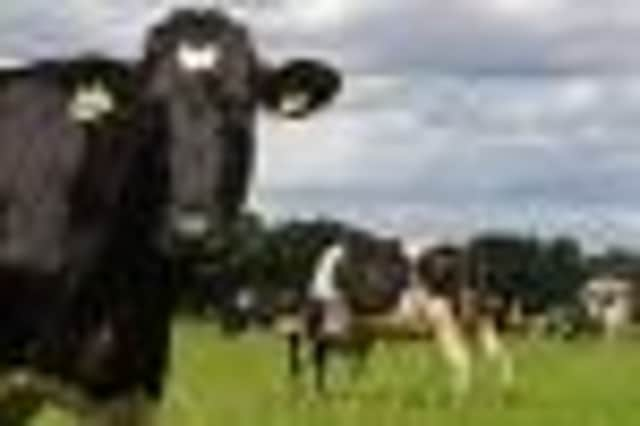UK’s 360,000 tonnes of wasted milk as harmful as 20,000 exhaust fumes


Scientists said 360,000 tonnes of milk is thrown out in the UK every year, needlessly produced by thousands of cows whose dung and urine create the equivalent of 100,000 tonnes of carbon dioxide.
That is the same level of greenhouse gases as that emitted by about 20,000 cars annually.
Advertisement
Hide AdAdvertisement
Hide AdInstead of carbon dioxide, cow dung and urine produces nitrous oxide, another key greenhouse gas which has the same effect on the climate as CO2 when the nitrogen mixes with the soil.
The situation is worsened by the practice of using cow dung as fertiliser to grow crops to feed dairy herds whose milk is not needed.
Dr David Reay, of Edinburgh University’s School of GeoSciences, who led the study, said: “It’s awful for the climate and a massive waste for us as people as well. There’s nothing in milk which we cannot consume, but it is one of the worst wastes because we tend to buy too much and then we pour it away when it goes off.”
The study is aimed at assessing the environmental impact of food production and highlighting what people can do to reduce waste.
Researchers also said halving the amount of chicken consumed in the UK and other developed countries to the low levels eaten in Japan could have the same impact on reducing greenhouse gas emissions as taking ten million cars off the road.
The research team said figures show if average chicken consumption in developed countries fell from the current level of 26kg every year to the Japanese average of about 12kg each by 2020, global emissions from poultry would fall to below current levels, despite increased output from the developing world.
This would cut the predicted global output of nitrous oxide from this source by almost 20 per cent, based on current growth rates, they said.
Dr Reay urged people to play their part in addressing the problem, saying: “Eating less meat and cutting down on food waste can play a big part in helping to keep a lid on greenhouse gas emissions as the world’s population increases.”
Advertisement
Hide AdAdvertisement
Hide AdThe results of the study, carried out in collaboration with the University of Aberdeen and partners in Europe and America, are published today in Nature Climate Change.
Researchers also suggested that the food industry could reduce emissions by seeking more efficient ways to use fertilisers.
The team based their findings on analysis of data for global agricultural production of greenhouse gases, including a key report on UK household waste by Wrap, an organisation promoting the economic and environmental benefits of reducing waste.
It is estimated that around 8.3 million tonnes of food and drink are wasted each year in the UK.